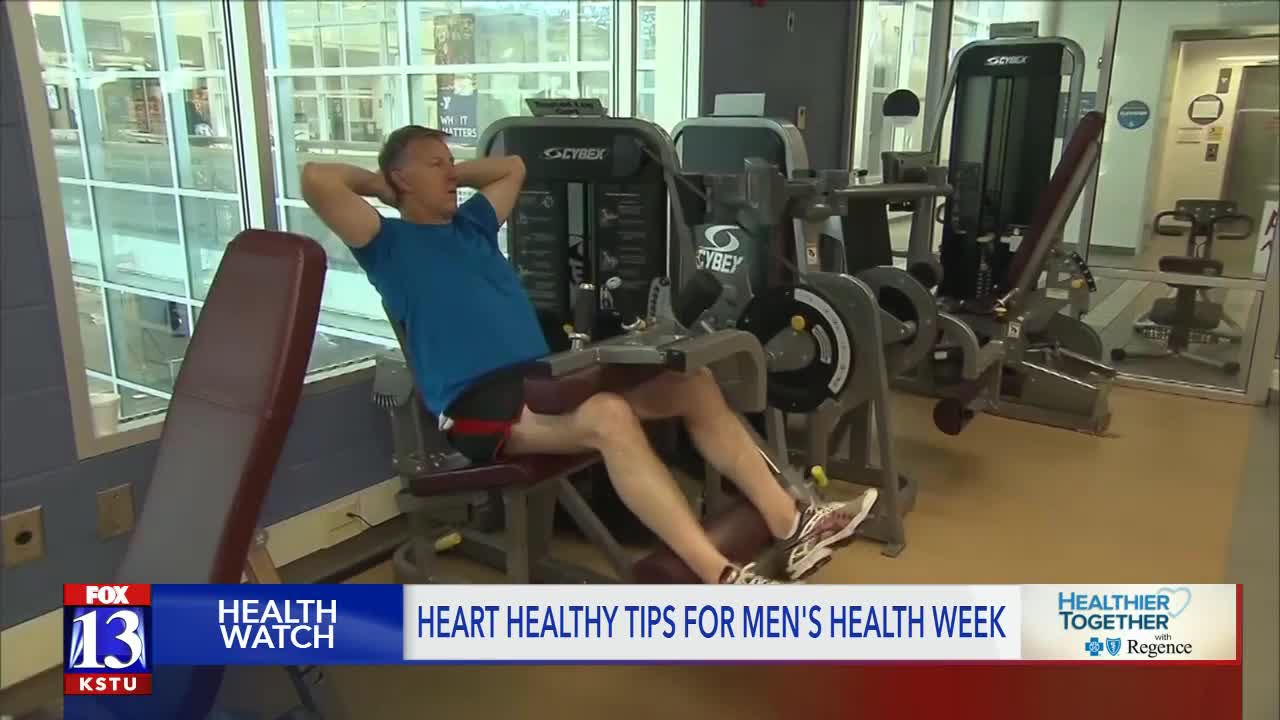It can be easy to put your needs on the back burner and let your health slip through the cracks. But experts say it doesn’t have to be difficult or time consuming to live a longer, healthier life.
And with Men’s Health Week coming up June 15, now is a good time to focus on something that is a major risk for men - heart disease, and the steps you can take to prevent it.
Allie Henderson, Safety and Wellness Consultant for Regence BlueCross BlueShield of Utah says even with the stress of everything going on right now, you need to "make sure you schedule your health as a priority."
Making simple changes to your life can pay dividends when it comes to your health. "A lot of lifestyle habits are within our control to greatly reduce a persons risk for heart disease," Henderson said.
Heart Disease is the number one killer for men, affecting 1 in 4. But experts say regular exercise, moments of mindfulness or meditation and proper nutrition can make a real difference. "The current guidelines recommend getting about 5 days of 30 minutes worth of moderate intensity exercise," said Henderson.
If dedicating a full 30 minutes to exercise seems too daunting, you can break it up into three 10 minute intervals throughout the day. Henderson says to keep in mind that, "The key in that 10 minutes is to get your heart rate elevated and that you are in that moderate intensity zone. One way to gauge that is to try to talk or to sing the alphabet and if it becomes difficult or you have to stop and get your breath that’s a good sign and that means you’re where you need to be."
To ensure you are getting your workout in, you should schedule it just like you would a doctor's appointment. "So rather than getting to the day of and trying to fit it in you already have it scheduled and things scheduled around it."
Don't forget that physical activity is only one piece of the puzzle. "Deep breathing or some mindfulness exercises can instantly reduce your blood pressure and decrease stress hormone cortisol and so that really leads to long term heart health benefits," Henderson said.
Nutrition is also important, but with so many diet trends it can be tough to know what you should do. Henderson says the simple answer is to do whatever makes you feel the best. She suggests filling your plate at least half full of fresh fruits and vegetables, then adding lean protein, whole grains and plant fats.
Henderson said, "Cutting back on processed foods that are high in sodium is really key for heart health and also choosing water as often as possible."
Once you implement a few simple lifestyle changes, you should check in with a physician to make sure they're working for you."It’s important to get those biometric markers, such as cholesterol, triglycerides, things like that, or blood panels. That’s a great way to know that what you’re doing works for you," said Henderson.
If you have questions you'd like our experts to answer or any story ideas, please email us at healthiertogether@fox13now.com.


